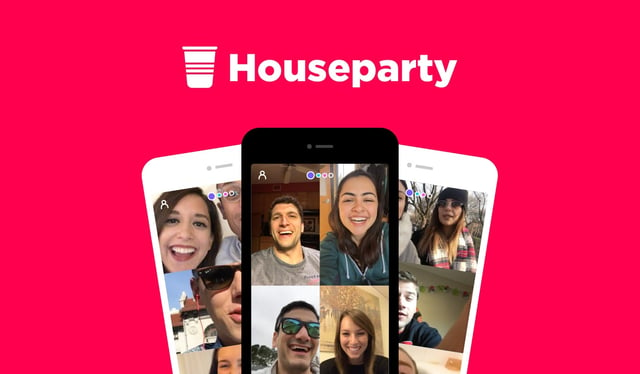Houseparty.
This is not a normal house party in which you have a few drinks at your friend’s house. It is a new phone app that that allows friends to videochat in groups of up to eight people. It has taken off with British teenagers and twenty-somethings after being launched last May. In fact, it has been downloaded more than four million times in the past 90 days, according to Apptopia.

The developers, who are based in San Francisco, recently secured $50 million of funding from venture capitalists convinced it would be the next Snapchat or WhatsApp. It is said to give you the feeling of being in a room with your friends in a way other apps don’t. Users drop in and out of conversations, catching up with whoever is there when they have a few spare minutes.
The “synchronous social network” allows groups of up to eight friends to chat and see each other on a split phone screen. Friends receive notifications whenever someone they know logs into the app — or they can send invitations to specific friends if no one is online. Strangers cannot crash group chats, and people who are friends with some of those in the group but don’t know the others are introduced with a “stranger danger!” banner.
The app’s design shows strong similarities to Snapchat (which is still the the No 1 video messaging app for people in their teens and early 20s). Snapchat, however, is used for sending short picture or video messages which self-destruct after they’ve been viewed, rather than holding real-time conversations. The app has however recently introduced a group messaging option.
Apple’s FaceTime is a popular video-messaging choice but doesn’t have a group chat option. And WhatsApp, the messaging app owned by Facebook, recently introduced video messaging but only for one-to-one conversation. Plenty of other apps offer group video chats, including Skype, and Google Hangouts, but these require users to dial particular friends’ numbers or send invitations.
There are problems with houseparty though. Users say it drains battery life and uses up a lot of data. Also, if one participant in the group’s connection isn’t strong, it can be annoying.
So is houseparty here to stay like What’s App, Skype and the other big hitting communications apps? We are not so sure. After trying it out ourselves, we think its popularity may not extend past the twenty-somethings. Adults (or at least those 30+) will most likely still opt to pick up the phone or organise a proper video conference call if need—as dropping in an out of an ongoing video conversation doesn’t really fit in with most people’s general modus operandi.
But then again, who knows? With network connectivity improving, better WiFi and today’s youth growing up with apps like houseparty as the norm, it very well could be the video app everyone uses in no time.
About VTSL
VTSL is a hosted communications technology company specialising in VoIP business phone systems and hosted phone services for companies across the UK and Ireland. With a private, top tier network, and 10 years experience as a leading VoIP provider, VTSL has set the standard for IP business phone systems. For more information on what your business can gain from a new VoIP system, click here or call 020 7078 3200.

